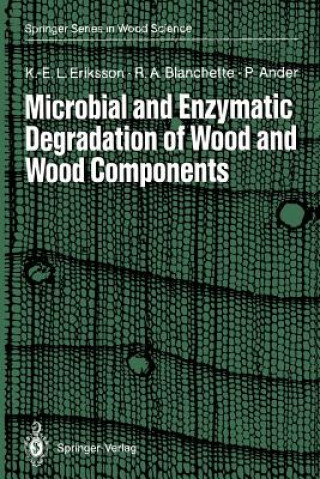
Versand
Kaufberater





Passt nicht? Macht nichts! Bei uns ist die Rückgabe innerhalb von 30 Tagen möglich
 Geschenkgutschein
In einem beliebigen Wert
Geschenkgutschein
In einem beliebigen Wert
Mit einem Geschenkgutschein können Sie nichts falsch machen. Der Beschenkte kann sich im Tausch gegen einen Geschenkgutschein etwas aus unserem Sortiment aussuchen.
Microbial and Enzymatic Degradation of Wood and Wood Components
 Englisch
Englisch
 349 b
349 b
30 Tage für die Rückgabe der Ware
Das könnte Sie auch interessieren


The oil crisis during the 1970s turned interest towards the utilization of renewable resources and towards lignocellulosics in particular. The 1970s were also the cradle period of biotechnology, and the years when biotechnical utilization of lignocellulosic waste from agriculture and forestry gained priori ty. This was a logical conclusion since one of nature's most important biologi cal reactions is the conversion of wood and other lignocellulosic materials to carbon dioxide, water and humic substances. However, while biotechnology in other areas like medicine and pharmacology concerned production of expen sive products on a small scale, biotechnical utilization and conversion of ligno cellulosics meant production of inexpensive products on a large scale. Biotechnical utilization of lignocellulosic materials is therefore a very difficult task, and the commercial utilization of this technology has not progressed as rapidly as one would have desired. One reason for this was the lack of basic knowledge of enzyme mechanisms involved in the degradation and conversion of wood, other lignocellulosics and their individual components. There are also risks associated with initiating a technical development before a stable platform of knowledge is available. Several of the projects started with en thusiasm have therefore suffered some loss of interest. Also contributing to this failing interest is the fact that the oil crisis at the time was not a real one. At present, nobody predicts a rapid exhaustion of the oil resources and fuel production from lignocellulosics is no longer a high priority.
Informationen zum Buch
 Englisch
Englisch
Kategorie


 Kontakt
Kontakt Wie einkaufen
Wie einkaufen
























